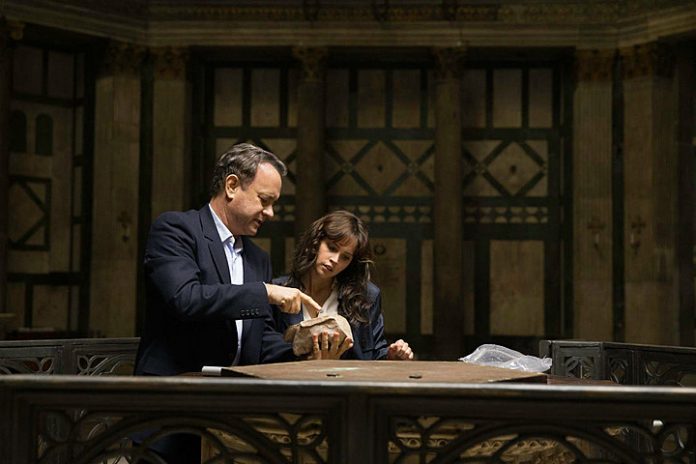“The only way humanity can heal is through pain.”
When professor and famous symbologist Robert Langdon wakes up in a bland hospital room with no recollection of where he is or how he got there, he must rely on the help of a young doctor, Sienna Brooks, in order to find out why he’s confined to a Florence hospital with a head wound.
While his last memory is reading a book outside Harvard University, his mind is filled by terrible visions of suffering, war, and death. He soon discovers that his reason for visiting Florence was much more sinister than admiring the Santa Maria del Fiore. Trying to connect real life danger to the first volume of Dante Alighieri’s The Divine Comedy: Inferno, the unveiling enigma takes viewers on a journey full of twists and well-hidden secrets.
On a positive note, the movie adaptation of Dan Brown’s book is definitely one of the better creations you can watch this fall, especially the first half of the movie which sticks to the mysterious atmosphere of solving a puzzle hidden in history. It is this unique symbiosis, fusing something as modern as biochemical warfare with literary and artistic creations of the High Renaissance without allowing it to devolve into a huge ball of chaos, that works best in the movie, along with presenting a bizarre understanding of how to save humanity. The script leaves a lot of space for afterthought, and when the movie prods you to think about it after the credits roll out, it speaks volumes.
However, even Inferno was unable to dodge one big, unfortunate mistake. In cinematography you can’t build story and characters simultaneously; you either build the story on characters or build characters on the story. There is not enough space to develop both in same depth and detail. ***Inferno, as many other films based on books, tries to do both. And although it is not as forced as it could have been, it distorts the overall good vibe from the whole experience. Don’t get me wrong, the personas carrying out the script are key aspects of the whole plot, but they are not the centre of it. Inferno is a bigger-picture oriented tale, and as such there is no need to know that the professor has romantic feelings for the FBI agent, etc … More so attempts like that take away from the natural flow of the story because you know they’re there just to make you feel closer to the character, but it’s unnecessary. You need to bond to the overall idea the story is trying to convey to you, which is done beautifully. Bringing in personal drama is distracting. One last lament would be that although the entire soundtrack is provided by Hans Zimmer, you only get to enjoy his magnificence at the end.
With all that said, Inferno still is very much worth watching, just do not expect the grandiose finesse of the Da Vinci Code or Angels and Demons.


